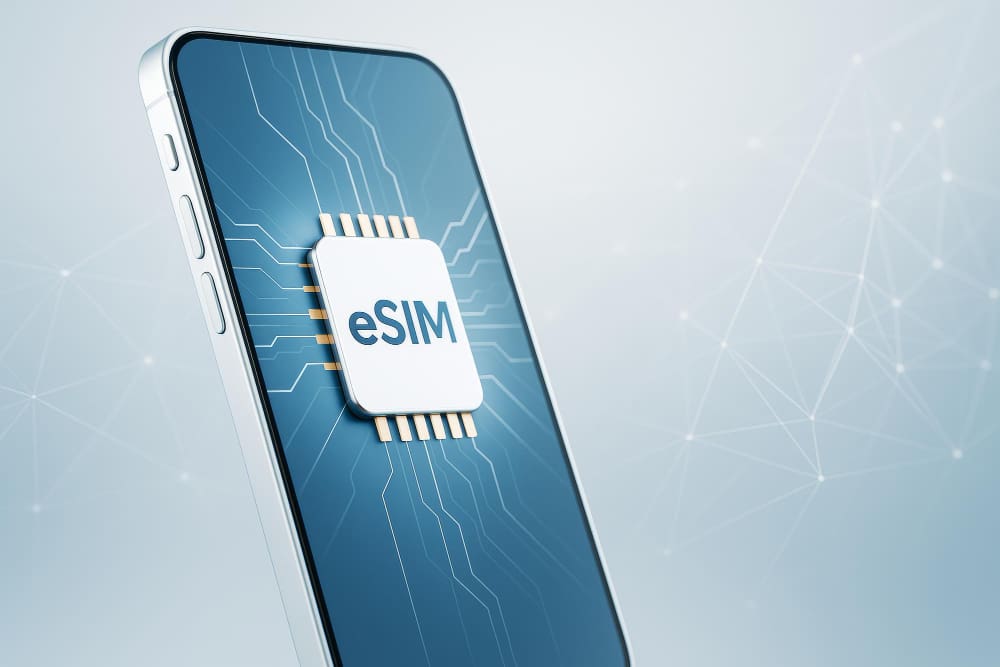In this blog we compare WiFi calling vs VoIP for businesses in 2026. While WiFi calling offers convenience for small teams, VoIP provides advanced features, scalability, and global connectivity. It explores benefits, challenges, and the future of VoIP and WiFi integration to help decision-makers choose the right communication system for growth.
In the fast-paced digital world of 2026, communication is the backbone of every growing business. With teams spread across different locations, clients expecting instant responses, and the demand for cost-effective solutions rising, companies are constantly evaluating the most efficient communication tools. Two of the most discussed technologies in this space are WiFi calling and VoIP (Voice over Internet Protocol).
While both offer internet-based calling capabilities, they serve different purposes and fit distinct business needs. If you’re a decision-maker wondering which is better VoIP vs WiFi calling this guide will give you a clear breakdown, including benefits, limitations, and how they integrate with modern workplace needs.
What is WiFi Calling?
WiFi calling allows you to make voice calls using a wireless internet connection instead of relying solely on your mobile network. It is typically a feature built into smartphones and supported by telecom operators. The main advantage of WiFi calling features is that it can provide better call quality in areas with poor cellular reception but strong internet access.
For example, if your office is located in a building with weak cellular signals but strong WiFi, WiFi calling can bridge that gap. It uses your phone’s dialer app meaning no special software or hardware is required.
Benefits of WiFi Calling Features
- Improved Call Quality Indoors – Offices with thick walls or underground locations often have poor signal. WiFi calling ensures uninterrupted communication.
- No Extra Apps Needed – Unlike some VoIP solutions, it works directly from your phone’s dial pad.
- Seamless International Roaming – When connected to WiFi abroad, you can avoid costly roaming charges.
- Accessibility – Employees don’t need advanced setups, making it easy for small teams.
However, WiFi calling is primarily designed for personal use or small-scale communication, not complex business systems.
What is VoIP?
VoIP (Voice over Internet Protocol) is a communication technology that converts voice into digital signals and transmits them over the internet. Unlike WiFi calling, which is tied to your telecom carrier, VoIP works independently and is designed for businesses of all sizes.
A VoIP phone system for small business can handle multiple calls at once, offer virtual numbers, voicemail-to-email, CRM integrations, and advanced analytics. It is essentially a scalable communication infrastructure.
Benefits of a VoIP Phone System
- Professional Business Identity – With a dedicated VoIP phone number, your business establishes credibility and separates work from personal calls.
- Scalability – Add or remove lines as your team grows, making it flexible for startups and enterprises alike.
- Advanced Features – Auto-attendants, call forwarding, IVR menus, and call analytics are standard.
- Cost Savings – International and long-distance calls are far cheaper compared to traditional networks.
- Remote-Friendly – Perfect for distributed teams, VoIP works anywhere with internet access.
In 2026, VoIP systems have evolved further, offering VoIP and WiFi integration, meaning businesses can combine both technologies for seamless experiences.
VoIP vs WiFi Calling: The Key Differences
Let’s compare VoIP vs WiFi calling in terms of business functionality:
| Factor | WiFi Calling | VoIP |
| Setup | Built into phones, enabled in settings | Requires a VoIP provider and setup |
| Scalability | Limited (1 device = 1 number) | Highly scalable for small & large teams |
| Features | Basic calling, no advanced options | Virtual numbers, call routing, analytics, integrations |
| Cost | No extra cost if included by carrier | Monthly subscription but cheaper international calls |
| Best For | Personal use, small teams | Startups, SMEs, Enterprises needing advanced solutions |
If your business only requires occasional calls and minimal features, WiFi calling features might suffice. But for growing businesses managing teams, sales calls, and customer service, a VoIP phone system for small business is the smarter choice.
How WiFi Calling Differs from WhatsApp or Other VoIP Apps
It’s easy to confuse WiFi calling with using apps like WhatsApp, Skype, or Zoom for voice calls, since both work over the internet. The difference lies in how they connect your call.
-
WiFi calling is a feature built into your mobile phone’s dialer and managed by your telecom carrier. It uses your regular phone number and works exactly like a normal call, except it routes the call through WiFi instead of a cellular tower.
-
VoIP or app-based calling (like WhatsApp or Zoom) uses the app’s own network and requires both parties to have that app installed and be connected to the internet. These calls don’t rely on your carrier or phone number.
In short, WiFi calling keeps your existing phone service but uses WiFi to strengthen connectivity, while VoIP apps work completely independently of your carrier.
The Role of VoIP and WiFi Integration in 2026
The future isn’t about choosing one over the other but combining VoIP and WiFi integration. Modern solutions allow employees to switch between WiFi calling and VoIP depending on the network availability and business needs.
For instance, an employee working remotely in an area with weak mobile coverage but good WiFi can use VoIP over WiFi. At the same time, field employees with mobile carrier support can rely on WiFi calling for smoother connectivity.
This hybrid approach ensures uninterrupted communication something businesses cannot afford to compromise in 2026.
Why Businesses Prefer VoIP Over WiFi Calling
While WiFi calling is convenient, businesses need more than just voice calls. Here’s why VoIP over WiFi is becoming the go-to solution:
- Dedicated Virtual Numbers – Customers expect professionalism. A VoIP phone number gives businesses a dedicated line, unlike WiFi calling tied to personal SIM cards.
- Unified Communications – VoIP supports video conferencing, messaging, and integrations with CRM tools.
- Remote Work Optimization – VoIP doubles up as one of the best remote work communication tools, ensuring global teams stay connected.
- Advanced Security – With encryption and compliance support, VoIP is more secure for businesses handling sensitive data.
- Virtual Expansion – For companies targeting new regions, VoIP allows setting up local numbers without physical offices.
This ties directly to why businesses need virtual phone numbers credibility, scalability, and global accessibility.
Challenges and Limitations
Of course, no solution is perfect.
WiFi Calling Challenges:
- Dependent on WiFi stability.
- Limited to basic calling and messaging.
- Not built for scaling across multiple employees.
VoIP Challenges:
- Requires strong internet bandwidth.
- Slight learning curve for setup.
- Monthly subscription costs (though still cheaper than traditional telephony).
Businesses must weigh these factors carefully while deciding between WiFi calling features and VoIP systems.
Making the Right Choice in 2026
- For small teams/startups: WiFi calling might be a cost-effective way to stay connected with no additional investment.
- For SMEs and enterprises: A VoIP phone system for small business or enterprise-grade VoIP setup is the way forward.
- For hybrid workplaces: Invest in VoIP and WiFi integration to combine the best of both worlds.
Ultimately, the decision comes down to whether you need just voice calls or a comprehensive communication system.
Final Thoughts
In the debate of VoIP vs WiFi calling, the answer lies in your business’s size, needs, and goals. While WiFi calling features are ideal for quick, low-cost communication, a VoIP phone system for small business or enterprise offers the scalability, professionalism, and flexibility required in 2026.
With the growing importance of VoIP over WiFi and VoIP and WiFi integration, businesses now have the power to stay connected across borders, devices, and networks. And as communication continues to define success, investing in the right solution today ensures long-term growth tomorrow.
FAQs: WiFi Calling vs VoIP for Business
Q1. Is WiFi calling the same as VoIP?
No. While both use the internet for calls, WiFi calling is tied to your telecom carrier and built into smartphones, while VoIP is a full-fledged communication system with advanced business features.
Q2. Can businesses rely only on WiFi calling?
Small teams might, but growing businesses benefit more from VoIP, as it offers features like call routing, virtual numbers, and integrations.
Q3. What are the top WiFi calling features businesses can use?
Clearer calls in low-signal areas, no need for extra apps, and reduced international roaming charges.
Q4. How does VoIP over WiFi work?
It uses your WiFi internet connection to transmit VoIP calls, ensuring flexibility for remote workers or locations without mobile signals.
Q5. Why do businesses need virtual phone numbers in 2026?
Virtual numbers create a professional presence, allow global expansion without physical offices, and improve customer service.










